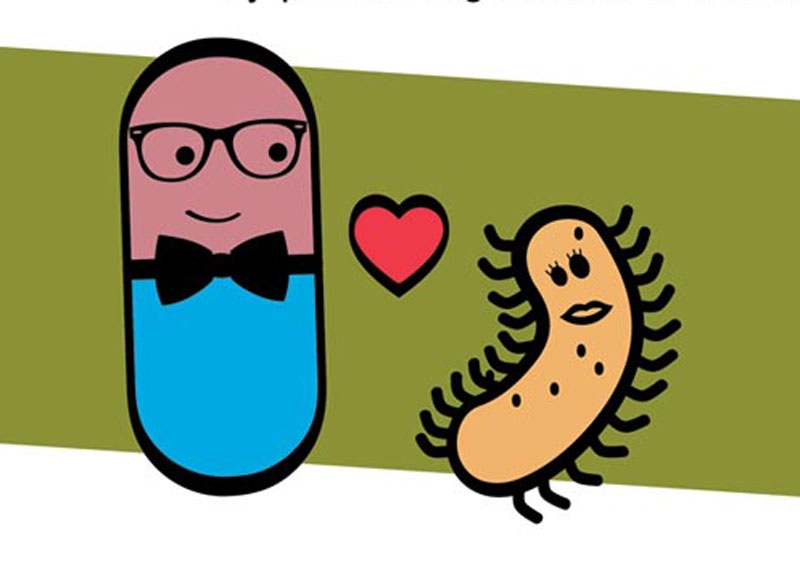13 Nov 2015

Image from one of the VMD posters.
The VMD is encouraging vets and VNs to think about how they can continue to prescribe antibiotics responsibly as the World Health Organization launches the first World Antibiotics Awareness Week from 16 to 20 November.

The week will run alongside the well-established European Antibiotics Awareness Day on 18 November.
The aim of the initiatives is to increase awareness of antimicrobial resistance (AMR) and to encourage people to take action to use antibiotics responsibly.
The VMD, which is the Government lead on antibiotic resistance in animal health, is looking at two ways to encourage vets to continue to review their prescribing.
Steve Eldridge, VMD policy advisor and communications and outreach, said: “The Antibiotic Guardian campaign is a way of showing your support for, and commitment to, using antibiotics responsibly and keeping them effective. It requires you to simply select one personal pledge.”
To become an antibiotic guardian, visit www.antibioticguardian.com and from “Healthcare professional or leader” box select “Veterinary and nurses teams” to view a number of pledges from which to choose.
The campaign is also aimed at the public, including pet and horse owners, farmers, vet students and vet nurses.
A series of “time for change” poster graphics have been created to reinforce key messages on responsible use and to challenge veterinary professionals to reflect and act on these recommendations.
Messages being promoted include “Reserve the use of critically important antibiotics for conditions that respond poorly to other classes of antibiotics”, “Use as narrow spectrum antibiotics as possible” and “Perform culture and sensitivity whenever possible to inform your prescribing”.

Practices wishing to display posters on their premises can download them from www.gov.uk
Mr Eldridge said: “The issue of AMR is not one that will go away. The uncomfortable tension remains that any use of an antibiotic can contribute to resistance, yet they are essential to treat a number of animal diseases.
“It is important to ensure antibiotics are used only when necessary because it is in the interest of animal welfare to preserve antibiotic efficacy for the future.”
He concluded: “Therefore, any actions we can take at a local level will contribute to the global response needed to keep these vital medicines effective for the future. We can all do our bit.”